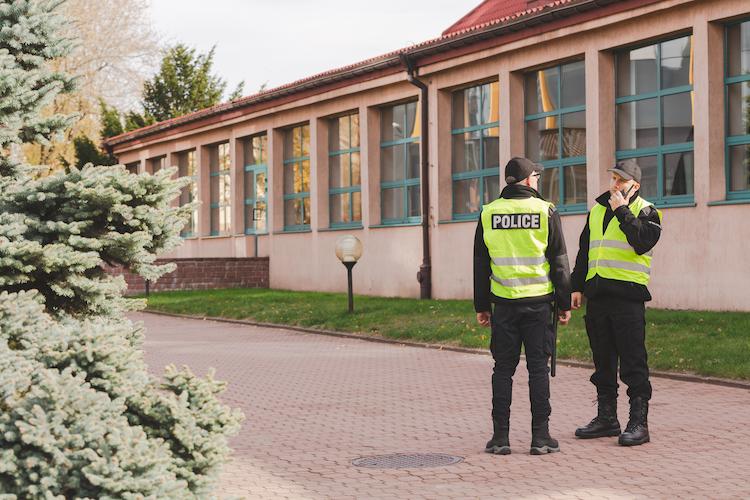
In In re Opinion No. 745 of the Supreme Court Advisory Committee on Professional Ethics (089278) (Decided February 18, 2025), the New Jersey Supreme Court held that New Jersey Rules of Court allow certified attorneys to pay referral fees to lawyers in other states even if they are not licensed here. The Court further held that the payment of referral fees does not raise concerns about the unauthorized practice of law.
Facts of In re Opinion No. 745 of the Supreme Court Advisory Committee on Professional Ethics
The Advisory Committee on Professional Ethics (ACPE or Committee) released Opinion 745 on March 7, 2024. The opinion responded to “inquiries about out-of-state lawyers” who sought “payment of referral fees from New Jersey certified attorneys.”
Rule 1:39-6(d) creates an exception to the general rule that New Jersey lawyers may not pay referral fees. It provide that (1) certified attorneys can pay referral fees (2) without regard to any legal work performed, and (3) the referral fee can be paid out of, but cannot exceed, the certified attorney’s reasonable fee for legal services rendered.
Meanwhile, Rule of Professional Conduct (RPC) 1.5(e) states in part that legal fees can be divided between lawyers who do not practice in the same firm if (1) the division is proportionate to the services each lawyer performs or (2) the lawyers assume joint responsibility for the representation in a written agreement with the client. RPC 1.5(e) does not relate to the attorney certification program.
In Opinion 745, the ACPE that “certified lawyers generally may not pay referral fees to out-of-state lawyers” who are not licensed to practice law in New Jersey. Its conclusion rests on the principle that “[r]eferral fees are a division of thelegal fee, paid for legal services rendered.” The ACPE looked to RPC 1.5(e) and concluded that “the lawyer to whom the fee is payable must be . . . licensed and eligible to practice law in New Jersey.” Opinion 745 also concluded that certified attorneys could not pay referral fees to lawyers who had to withdraw from a case because of a conflict of interest, although the referring “lawyer is entitled to payment for legal services rendered prior to withdrawing.” In addition, Opinion 745 states that “[c]ertified lawyers may pay referral fees to lawyers who were in good standing and eligible to practice law” when the referral was made but were later suspended or disbarred. Several organizations petitioned the Court for review of Opinion 745, which the New Jersey Supreme Court granted.
NJ Supreme Court’s Decision in In re Opinion No. 745 of the Supreme Court Advisory Committee on Professional Ethics
The New Jersey Supreme Court unanimously vacated Opinion 745. “We find that the Court Rules allow certified attorneys to pay referral fees to lawyers in other states even if they are not licensed here,” Chief Justice Stuart Rabner wrote. “We also note that the payment of referral fees does not raise concerns about the unauthorized practice of law.”
In reaching its decision, the New Jersey Supreme Court concluded that the text of the two rules does not present a conflict. “Although both relate to a similar subject—the division of fees—Rule 1:39-6(d) governs referral fees, while RPC 1.5(e) addresses the division of fees for legal services,” Chief Justice Rabner wrote. “Viewed in that way, the rules can be read and applied as part of a unitary system.”
The New Jersey Supreme Court also noted that because referral fees are not paid for legal services, Rule 1:39-6(d) does not invoke concerns about the unauthorized practice of law. Similarly, the Rule does not require referring attorneys to be eligible to practice law in New Jersey.

In In the Matter of the Estate of Michael D. Jones, Deceased (A-28-23/088877) (Decided January 27, 2025), the Supreme Court of New Jersey held that an ex-spouse’s rights as the pay-on-death beneficiary on her deceased ex-husband’s U.S. savings bonds were not superseded by the parties’ divorce. According to the Court, the entitlement to the savings bonds was separate and apart from the obligations pursuant to their divorce settlement agreement (DSA).
Facts of In the Matter of the Estate of Michael D. Jones
Decedent Michael Jones purchased U.S. savings bonds while he was married to Jeanine Jones. Michael designated Jeanine as the pay-on-death beneficiary for the savings bonds. When the couple divorced, they entered into a DSA that provided for the disposition of certain property but did not specifically list and dispose of the savings bonds. The DSA further required Michael to pay Jeanine a total of $200,000 over a period of time in installments. After Michael’s death, Jeanine redeemed the savings bonds, which were worth approximately $77,800. At the time of his death, Michael had paid Jeanine approximately $110,000 towards his $200,000 obligation under the DSA.
Michael’s daughter from a previous relationship, Shontell Jones, who was the administrator of Michael’s Estate, sought a determination that the Estate had fulfilled Michael’s obligations under the DSA, arguing that the $77,800 in savings bonds and other cash Jeanine retrieved from Michael’s accounts after his death counted toward the $200,000 Michael owed to Jeanine. The trial court agreed with the Estate and concluded that the savings bonds were part of the amount due to Jeanine under the parties’ DSA and counted towards Michael’s $200,000 obligation.
The Appellate Division reversed, finding that the DSA did not divest Jeanine of her rights to the savings bonds and that the trial court erred in applying state law to decide the disposition of the bonds instead of the federal regulations governing U.S. savings bonds.
NJ Supreme Court’s Decision in In the Matter of the Estate of Michael D. Jones
The New Jersey Supreme Court affirmed. It held that the DSA did not revoke Jeanine’s beneficiary status on the federal savings bonds and that the bonds’ redemption value could not offset the estate’s obligation to pay the outstanding balance under the DSA.
The New Jersey Supreme Court first addressed the preemption issue. It concluded that N.J.S.A. 3B:3-14 does not conflict with and is therefore not preempted by the federal statutes and regulations that govern U.S. savings bonds.
“Because N.J.S.A. 3B:3-14(a) does not supersede the terms of a governing instrument, and because the terms of the bonds at issue here prevent the automatic revocation of a pay-on-death provision following a divorce, no such automatic revocation occurred under the exception set forth in Section 3-14(a),” Justice Pierre-Louis explained. “As the New Jersey statute incorporates and follows the relevant federal regulations, we agree with the parties that preemption does not apply here.”
The New Jersey Supreme Court went on to find that because the federal regulations on savings bonds did not conflict with New Jersey divorce law, Jeanine’s entitlement to redeem the bonds was distinct from and unaffected by her rights under the DSA. In support, the Court noted that the DSA is silent regarding the bonds, and its broad catchall provision — that “[a]ny marital asset not listed below belongs to the party who has it currently in their possession” — simply confirms Jeanine’s ownership. “The Estate is correct that the U.S. savings bonds, which were marital assets not listed in the DSA, belonged to Michael at the time the DSA was executed and during his life,” Justice Pierre-Louis wrote. “The moment Michael passed away, however, Jeanine became the sole owner of the bonds as the pay-on-death beneficiary per 31 C.F.R. § 353.70(c)(1).”

In D.T. v. Archdiocese of Philadelphia (A-35-23/088966) (Decided February 4, 2025), the Supreme Court of New Jersey held that New Jersey courts can’t exercise personal jurisdiction over the Archdiocese of Philadelphia based on alleged sexual abuse by a priest assigned by the Archdiocese to a Pennsylvania parish, during an overnight trip to a private home in New Jersey. According to the state’s highest court, the Archdiocese’s exercise of supervisory authority over the priest did not rise to the minimum contacts between the Archdiocese and New Jersey that would be necessary to exercise specific jurisdiction under Fourteenth Amendment due process principles.
Facts of D.T. v. Archdiocese of Philadelphia
Plaintiff D.T. alleges that Michael McCarthy, a former Catholic priest, sexually abused him in New Jersey in 1971. At that time, plaintiff was fourteen years old, and McCarthy was serving as a priest and teacher in the Archdiocese of Philadelphia (the Archdiocese). As detailed in court documents, McCarthy invited plaintiff to go with him to a home McCarthy used in Margate, New Jersey. The Plaintiff’s mother gave permission, and McCarthy and the Plaintiff then drove to the Margate home. When they arrived, the Plaintiff alleges that McCarthy showed him pornography, encouraged him to drink alcohol, and sexually assaulted him.
In May 2019, the Legislature enacted the New Jersey Child Victims Act, which, for a two-year period, reopened the statute of limitations for certain time-barred civil claims arising from sexual offenses committed against minors. In May 2020, D.T. filed this action against the Archdiocese and McCarthy.D.T. alleged that defendants negligently provided pastoral services to him when McCarthy sexually abused him in New Jersey. D.T. also contended that the Archdiocese was vicariously liable for McCarthy’s tortious acts and that the Archdiocese was negligent in hiring and supervising McCarthy.
Pursuant to Rule 4:6-2(b), the Archdiocese moved to dismiss D.T.’s complaint for lack of personal jurisdiction. The trial court granted the Archdiocese’s motion to dismiss. The Appellate Division affirmed, finding no basis for personal jurisdiction. It held that “McCarthy was not acting within the scope of his responsibilities as a priest when he sexually assaulted” D.T.
NJ Supreme Court’s Decision in D.T. v. Archdiocese of Philadelphia
The New Jersey Supreme Court agreed that the Archdiocese did not establish the required contact with New Jersey to allow D.T.’s claims. “D.T. has not demonstrated that the Archdiocese’s exercise of supervisory authority over McCarthy gave rise to minimum contacts between the Archdiocese and New Jersey that relate to this action,” Justice Anne Patterson wrote.
In reaching its decision, the New Jersey Supreme Court explained that pursuant to Fourteenth Amendment due process principles, a court may exercise specific personal jurisdiction over a nonresident defendant only if there was “some act by which the defendant purposefully avail[ed] itself of the privilege of conducting activities” in the forum state, “thus invoking the benefits and protections of its laws.” Citing Hanson v. Denckla, 357 U.S. 235, 253 (1958), the New Jersey Supreme Court further noted that the plaintiff’s claims must also “arise out of or relate to the defendant’s contacts with the forum” state. If the court concludes that there are sufficient contacts, it must also find that “the maintenance of the suit does not offend ‘traditional notions of fair play and substantial justice’” in order to assert personal jurisdiction over the defendant in accordance with Int’l Shoe Co. v. Washington, 326 U.S. 310, 316 (1945).
Applying these jurisdictional principles, the New Jersey Supreme Court found that New Jersey may not exercise specific jurisdiction over the Archdiocese unless the Archdiocese purposefully availed itself of the privilege of conducting activities in New Jersey, and the claims at issue arose from or related to the Archdiocese’s contacts with New Jersey. It went on to conclude that Archdiocese’s oversight of McCarthy’s work as a priest did not give rise to the necessary nexus with New Jersey. As Justice Patterson explained:
If D.T.’s allegations are true, it was McCarthy, not the Archdiocese, who initiated and maintained contacts with New Jersey that are relevant to this case. It was McCarthy, not the Archdiocese, who either owned or had access to the private home in Margate where the sexual abuse allegedly occurred. It was McCarthy, not the Archdiocese, who sought and obtained the permission of D.T.’s mother to take him on an overnight trip. And it was McCarthy, not the Archdiocese, who allegedly drove D.T. to Margate where he sexually assaulted the boy. There is no evidence that any Archdiocese representative was aware of McCarthy’s impending trip, let alone that it assigned McCarthy to take D.T. to New Jersey. There is no evidence that McCarthy conducted business on behalf of the Archdiocese in New Jersey, or that the trip entailed any religious or ecclesiastical activities.
Based on the above, the New Jersey Supreme Court found that D.T. had not demonstrated that the Archdiocese’s exercise of supervisory authority over McCarthy gave rise to minimum contacts between the Archdiocese and New Jersey that relate to this action. Accordingly, it affirmed the dismissal of his claims.

In Wiggins v. Hackensack Meridian Health (A-43-23/089441) (Decided January 22, 2025), the New Jersey Supreme Court held that when a defending physician practices in more than one specialty and the treatment involved falls within any of that physician’s specialty areas, then an affidavit of merit (AOM) from a physician specializing in one of those specialties is sufficient.
Facts of Wiggins v. Hackensack Meridian Health
Plaintiffs, the administrators of the Estate of April Carden, filed a medical malpractice complaint against defendants Hackensack Meridian Health d/b/a JFK University Medical Center (JFK), Alok Goyal, M.D., and South Plainfield Primary Care (SPPC) (collectively, defendants).
The Plaintiffs allege that Carden’s death was directly attributable to Allopurinol prescribed by Dr. Goyal, that Dr. Goyal’s negligence caused Carden’s death, and that JFK and SPPC were vicariously liable because Dr. Goyal was an “agent, servant, or employee” of both.
Dr. Goyal and SPPC filed their answer and included the following Rule 4:5-3 Specialty Statement: “At all relevant times, these defendants practiced the medical specialties of Internal Medicine and Gastroenterology and their treatment of [Carden] involved the medical specialties of Internal Medicine and Gastroenterology.”
Plaintiffs provided each defendant with an AOM from Dr. Stella Jones Fitzgibbons, who is board certified by the American Board of Internal Medicine. Defendants stated that Dr. Fitzgibbons was unqualified to execute an AOM as to them. Dr. Goyal amplified his Specialty Statement, noting that “[a]ll treatment that I rendered to [Carden] was provided as both an internist and as a gastroenterologist.” Defendants then moved to dismiss the complaint for failure to comply with the AOM statute.
Plaintiffs argued that internists prescribe Allopurinol, not gastroenterologists. Alternatively, they argued that, given defendants’ Specialty Statement, an AOM from an internist is sufficient. The trial judge denied the motions to dismiss the complaint. He found “that the ‘care and treatment at issue’ was the prescribing of Allopurinol, and the ‘care or treatment at issue involves internal [medicine].’”
Relying on Buck v. Henry, 207 N.J. 377 (2011), the trial judge concluded alternatively that plaintiffs complied with the AOM statute by submitting the AOM from Dr. Fitzgibbons, who is board certified in internal medicine. In Buck, the Supreme Court found that when a physician practices “in more than one specialty, and the treatment involved may fall within that physician’s multiple specialty areas . . . an [AOM] from a physician specializing in either area will suffice.” The judge later denied defendants’ motion for reconsideration. The Appellate Division reversed, concluding that plaintiffs were required to “serve an AOM from a physician board certified in each of [Dr. Goyal’s] specialties” and that the language from Buck on which the trial court relied was dicta.
NJ Supreme Court’s Decision in Wiggins v. Hackensack Meridian Health
The New Jersey Supreme Court reversed. It held that when a defending physician practices in more than one specialty and the treatment involved falls within any of that physician’s specialty areas, then an AOM from a physician specializing in one of those specialties is sufficient under the statutes.
As explained by the New Jersey Supreme Court, N.J.S.A. 2A:53A-27 requires a medical malpractice plaintiff to show that the complaint is meritorious by obtaining an affidavit from “an appropriate licensed person” attesting to the “reasonable probability” of professional negligence. Enacted in 2004, the Patients First Act (N.J.S.A. 2A:53A-41) adds to the AOM statute the “equivalently qualified” requirement for an AOM in a medical malpractice case.
For those physicians who are specialists in a field recognized by the American Board of Medical Specialties and who are board certified in that specialty, the challenging expert must either be credentialed by a hospital to treat the condition at issue or be board certified in the same specialty in the year preceding the occurrence that is the basis for the claim or action.
The New Jersey Supreme Court next turned to Buck, which it found provided guidance —which was not dicta — germane to when a defending physician practices in more than one specialty and when the treatment involved may fall within those specialty areas.
As Justice Fasciale explained, “‘[M]atters in the opinion of a higher court which are not decisive of the primary issue presented but which are germane to that issue … are not dicta, but binding decisions of the court’ [and] ‘the legal findings and determinations of a high court’s considered analysis must be accorded conclusive weight by lower courts.’”
Turning to the text of the statute, the New Jersey Supreme Court emphasized that the AOM statute referenced “specialty” or “subspecialty” in the singular, indicating that the statute only required one specialty. Justice Fasciale wrote:
It is undisputed that Dr. Goyal is board certified in the specialty of internal medicine and in the subspecialty of gastroenterology. N.J.S.A. 2A:53A-41(a) requires the affiant of the AOM to be board certified in the same “specialty or subspecialty” of the defending physician, not specialties or subspecialties. N.J.S.A. 2A:53A-41(a)(2)(a) requires the affiant of the AOM to devote a majority of that person’s “active clinical practice” to the defending physician’s “specialty or subspecialty,” not specialties or subspecialties. Dr. Fitzgibbons meets those requirements. The plain language of N.J.S.A. 2A:53A-41 does not require an AOM to be from an individual with the same numerous specialties as the defending physician; instead, it requires only the same “specialty or subspecialty” in the singular (emphasis added). The New Jersey Supreme Court also found that the AOM complied with Buck. “Under Buck, when ‘the treatment involved may fall within [a] physician’s multiple specialty areas’ — as is the case here — ‘an [AOM] from a physician specializing in either area will suffice,’” Justice Fasciale wrote. “Therefore, Dr. Fitzgibbons’ AOM complies with the AOM statute, N.J.S.A. 2A:53A-41(a)(2)(a), and Buck, neither of which require an AOM from an individual matching all areas of practice if a defending physician practices in multiple specialty areas.”

In Fuster v. Township of Chatham (A-33-23/089030) (Decided January 21, 2025), the Supreme Court of New Jersey ruled that the Chatham Township Police Department must release a body worn camera recording of a statement Plaintiff Antonio Fuster made to police because New Jersey’s Open Public records Act (OPRA) does not contain any explicit exemption for information received by law enforcement regarding an individual who was not arrested or charged.
Facts of Fuster v. Township of Chatham
In May 2022, Antonio Fuster went to the Chatham Township Police Department to report that his special needs child had accused an adult male relative of sexual misconduct. Police interviewed Fuster, and the conversation was recorded on a body worn camera. Fuster and his wife, Brianne Devine, reviewed the initial police report based on the interview and informed police that the report was inaccurate.
Fuster submitted an Open Public Records Act (OPRA) request for any written police reports and the body worn camera video footage of his interview. A records clerk denied the request for the video. The next day, Fuster submitted another OPRA request, this time stating that he was requesting copies of the video under the common law.
Fuster also emailed Chatham records custodian Gregory LaConte to request that the video recording be preserved for three years pursuant to the Body Worn Camera Law (BWCL) (N.J.S.A. 40A:14-118.5(k)). Subsection (k) of the BWCL instructs that “to effectuate” N.J.S.A. 40A:14-118.5(j)(2)(e), which allows a member of the public who is the subject of a body worn camera video to request that police retain the video for three years, “the member of the public . . . shall be permitted to review the body worn camera recording in accordance with the provisions of [OPRA] to determine whether to request a three-year retention period.”
Devine also submitted an OPRA Request Form, requesting to view the video of Fuster’s in-person interview “to determine whether or not to file a request for a 3 year retention period.” LaConte sent Fuster and Devine identical letters denying their OPRA requests.
Fuster and Devine (collectively, the Plaintiffs) filed a complaint against the Township of Chatham and LaConte (collectively, the Defendants). The trial court entered judgment in favor of the Defendants. The Appellate Division affirmed, concluding that the four “exemptions listed in N.J.S.A. 40A:14-118.5(l) are in addition to OPRA’s exemptions” and that “the video was exempt from disclosure under judicial case” law’s “well-established confidentiality exemption protecting an uncharged person’s law enforcement records from disclosure.”
NJ Supreme Court’s Decision in Fuster v. Township of Chatham
The New Jersey Supreme Court reversed, holding that the video should be released to the Plaintiffs.
The New Jersey Supreme Court first found that the Defendants erred in refusing to permit Fuster to review the video “to determine whether to request a three-year retention period.” However, because he went ahead and requested the extended retention period anyway, subsection (k) no longer granted Fuster the right to review the video.
“We hold that subsection (k) does not permit plaintiffs to review the video in this case, because Fuster has already requested that the video be retained for three years, and Devine is neither the subject of the video nor one of the other specified persons entitled to review,” Justice Rachel Wainer Apter wrote.
The New Jersey Supreme Court went on to find that OPRA does not contain any explicit exemption for information received by law enforcement regarding an individual who was not arrested or charged. “[B]efore OPRA was enacted, judicial case law in this state had not established or recognized any automatic grant of confidentiality for all law enforcement records related to a person not arrested or charged with an offense,” Wainer Apter said. “There was therefore nothing in this regard for OPRA to not ‘abrogate or erode’ under [the Body Worn Camera Law] when it came into effect. The Appellate Division erred in holding otherwise.”
“In terms of the privacy interests of the adult male relative, if Fuster wished to publicize the allegations, he could film himself making them again and broadcast the video on social media or to news sites,” Justice Wainer Apter added.
In Brehme v. Irwin (A-40-23/089025) (Decided January 15, 2025), the Supreme Court of New Jersey held that when a plaintiff accepts a final judgment, that party may still appeal if the party can show that (1) it made known its intention to appeal prior to accepting payment of the final judgment and prior to executing the warrant to satisfy judgment, and (2) prevailing on the appellate issue will not in any way impact the final judgment other than to potentially increase it.
Facts of Brehme v. Irwin
Defendant Thomas Irwin rear-ended plaintiff Linda Brehme’s car. Brehme’s Personal Injury Protection (PIP) carrier paid benefits, but not up to the policy limits. Brehme filed a personal injury complaint against Irwin. At trial, Brehme moved to admit into evidence her projected future medical expenses. The trial judge denied the motion because Brehme had not exhausted her PIP limits. The jury awarded Brehme $225,000 “for pain, suffering, disability, impairment and loss of enjoyment of life,” $50,000 for past lost wages, and $0 for future lost earnings.
On July 7, 2022, the judge entered the final judgment. Irwin’s carrier paid the final judgment, which Brehme’s counsel deposited into his trust account. Brehme’s counsel also signed a warrant to satisfy judgment dated July 18, 2022. On July 29, 2022, Brehme’s counsel wrote to the judge stating that he was “attempting to file an appeal regarding the barring of Brehme’s claim for future medical expenses.” On August 8, 2022, Irwin filed the warrant to satisfy judgment with the trial court. That same day, Brehme filed her Notice of Appeal (NOA) from the final judgment.
The Appellate Division dismissed Brehme’s appeal as moot, noting that Brehme “accepted and received the full [final] judgment amount” and later “signed a warrant to satisfy judgment” before indicating her desire to appeal.
NJ Supreme Court’s Decision in Brehme v. Irwin
The New Jersey Supreme Court affirmed. It held that Brehme’s appeal was property dismissed as moot.
“We hold that when a plaintiff accepts a final judgment, that party may still appeal if the party can show that (1) it made known its intention to appeal prior to accepting payment of the final judgment and prior to executing the warrant to satisfy judgment, and (2) prevailing on the appellate issue will not in any way impact the final judgment other than to potentially increase it,” Justice Douglas M. Fasciale wrote on behalf of the Court.
In reaching its decision, the New Jersey Supreme Court cited its decision in Adolph Gottscho v. American Marking, 26 N.J. 229 (1958), in which the Court clarified that the appealability of a final judgment is a more nuanced issue, particularly when the appeal could serve to increase but not to reduce the amount of the judgment.
“In other words, the court clarified that a party is not estopped from appealing a separable issue, even when a party accepts the benefits of a final judgment, if the only issue raised on appeal would increase the benefit awarded to the party appealing, but not impact the accepted, underlying final judgment,” Justice Fasciale wrote.
The New Jersey Supreme Court went on to hold that Brehme appealed without satisfying either prong. Accordingly, the Appellate Division correctly dismissed the appeal as moot without reaching the merits.
As to the first prong, the Court concluded that Brehme did not make her intention to appeal known prior to accepting payment of the final judgment and prior to executing a warrant to satisfy that judgment. With regard to the second prong, it found that prevailing on the evidentiary appellate issue — whether a plaintiff can admit into evidence future medical expenses in a civil suit even though her PIP limits have not yet been exhausted — would require vacating the final judgment because a claim for future medical expenses is not separable from seeking compensation for pain and suffering. “Thus, even if we concluded that [plaintiff] met prong one, she is unable to show that prevailing on the trial court evidentiary ruling will not impact the final judgment and only potentially increase it,” Justice Fasciale wrote.
“One jury cannot hear evidence relevant to pain and suffering and another jury hear evidence relevant to future medical expenses,” Justice Fasciale added. “Assuming the admissibility of future medical expenses in this case, the two claims—pain and suffering and future medical expenses—would have to be considered simultaneously. Those claims cannot be fairly adjudicated separately.”

In 20th Avenue Realty, LLC v. Alessandro Roberto (A-29-23/088959) (Decided January 9, 2025), the New Jersey Supreme Court ruled that the version of the Tax Sale Law (TSL) in effect prior to the law’s 2024 amendment violates the Takings Clause of the Fifth Amendment to the extent it allows for the forfeiture of surplus equity without just compensation.
Facts of 20th Avenue Realty, LLC v. Roberto
Defendant Alessandro Roberto bought a property in Paterson in 1997; in 2022, a realtor estimated the property could be listed for up to $535,000. Roberto failed to pay three sewer tax bills on the property totaling $606. The City of Paterson placed tax liens on the property for that amount, and plaintiff 257-261 20th Avenue Realty, LLC, bought the corresponding tax sale certificates at public auction. Years later, plaintiff filed a tax foreclosure complaint. The trial court set the amount of redemption at $32,973.15. Roberto did not answer the complaint or pay the redemption amount, and the court entered a judgment in plaintiff’s favor.
Within two months of the final judgment, Roberto moved to permit redemption under Rule 4:50-1, arguing that he had posted $50,000 in escrow to redeem the property; that he had invested about $200,000 in improvements to the property since its purchase; and that, at age seventy-five, the “[p]roperty was crucial to [his] retirement because it ha[d] over several hundred thousand dollars in equity” beyond the amount of past taxes owed. The trial court ultimately vacated the judgment under Rule 4:50-1(f), which allows for judgments to be set aside in exceptional circumstances. Plaintiff appealed. While the appeal was pending, the Supreme Court decided Tyler v. Hennepin County, 598 U.S. 631 (2023). In that case, the Court held that a homeowner — faced with forfeiture of the surplus equity in her home under Minnesota’s tax foreclosure law — had plausibly alleged a taking in violation of the Fifth Amendment. According to the Court, although “[t]he County had the power to sell Tyler’s home to recover the unpaid property taxes[,] . . . it could not . . . confiscate more property than was due.”
The Appellate Division concluded that the Supreme Court’s decision in Tyler provided cause to vacate judgment and affirmed. It also held that, under New Jersey precedent, Tyler should be given pipeline — not full — retroactivity, and it separately found that the trial court did not abuse its discretion in granting relief under Rule 4:50-1(f).
NJ Supreme Court Decision in 20th Avenue Realty, LLC v. Roberto
The New Jersey Supreme Court affirmed. It held that the applicable version of the TSL in this case is unconstitutional to the extent it allows for the forfeiture of surplus equity without just compensation.
In reaching its decision, the New Jersey Supreme Court found that New Jersey recognizes a property right to surplus equity in real property, and because private lienholders act jointly with local government under the TSL to perform a traditional public function — the collection of taxes —- they may be considered state actors. As Chief Justice Stuart Rabner explained:
We hold that the applicable version of the TSL in this case is unconstitutional to the extent it allows for the forfeiture of surplus equity without just compensation. Certain principles underlie that holding. We find that New Jersey recognizes a property right to surplus equity in real property. We also conclude that because private lienholders act jointly with local governments under the TSL to perform a traditional public function — the collection of taxes — they may be considered state actors. And we reject the argument that the surplus equity initially foreclosed in this case was not taken for a public use. Under settled law, it could not have been taken for a private use. Plus, takings under the TSL are not for private use; they are designed to raise revenue for municipalities to operate.
The New Jersey Supreme Court went on to hold that the version of the TSL in effect before 2024 runs counter to the principles outlined in Tyler and violates the Takings Clause of the Fifth Amendment.“Lienholders are entitled to recover debts they are owed — the value of tax sales certificates they purchased at public auction along with interest and related costs. But they are not entitled to surplus equity in property that exceeds that amount,” Chief Justice Rabner explained. The New Jersey Supreme Court did not address whether the new law fully comports with Tyler. “We asked for additional briefing on the new law and note that it has no effect on this appeal. For that reason, we do not reach Roberto’s argument that the revised law is still unconstitutional,” Rabner wrote.

The New Jersey Supreme Court recently heard oral arguments in Salve Chipola, III v. Sean Flannery (088836). The case involves the statute of limitations for false light invasion of privacy claims.
Facts of Chipola v. Flannery
On December 28, 2021, plaintiff Salve Chipola, IIIfiled a complaint against defendant Sean Flannery containing the following allegations: On January 9, 2020, Chipola attended a basketball game at the Clearview Regional High School gym in Harrison. He walked past the defendant, who was speaking with a school staff member and another individual. Five days later, Chipola went to the school to watch another game and a police officer served him with a letter from the school advising him that he was no longer permitted on school grounds. The officer asked Chipola if he was selling drugs to or purchasing alcohol for students, which Chipola denied. Upon reflection, Chipola believed the defendant may have been the genesis of the allegations. After Chipola confronted the defendant via text message, he admitted he had made the accusatory statements about the plaintiff to the school staff member during the January 9 game.
In his suit, Chipola alleged that the defendant either made these statements knowing they were false or in reckless disregard of their falsity and as a result, his “reputation as a drug dealer became publicized throughout the county,” his photograph was posted throughout the county “as a drug dealer” and he was barred from school sporting events, which “created a false public impression of [him] as a drug dealer.” Chipola further alleged that the defendant and other unnamed individuals put his reputation in false light and committed the tort of false light invasion of privacy. The trial court dismissed the suit for failure to file within the one-year statute of limitations applicable to false light invasion of privacy claims.
Appellate Division Decision
The Appellate Division affirmed the dismissal, holding that Chipola’s complaint was not filed within the applicable one-year statute of limitations.
In reaching its decision, the appeals court explained that there are four types of invasion of privacy: (1) intrusion on a plaintiff’s “physical solitude or seclusion,” (2) public disclosure of private facts, (3) placing plaintiff in a false light in the public eye, and (4) appropriation of a plaintiff’s name or likeness for the defendant’s benefit. While they share similarities, separate and distinct causes of action subject to different rules.
The Appellate Division went on to find false light claims are subject to a one-year statute of limitations, refusing to overturn its prior decision in Swan v. Boardwalk Regency Corp., 407 N.J. Super. 108, 121 (App. Div. 2009). In Swan, the Appellate Division found false light invasion of privacy to be “essentially one of defamation” subject to a one-year statute of limitations; and dissimilar to an intrusion on seclusion, which is an injury to person subject to a two-year statute of limitations; or appropriation, which is an injury to property rights subject to a six-year statute of limitations.
Issues Before the NJ Supreme Court
The New Jersey Supreme Court agreed to consider the case on Sept. 9, 2024. The specific issue before the justices is:
Does a claim alleging false light invasion of privacy have a one-year statute of limitations, see Swan v. Boardwalk Regency Corp., 407 N.J. Super. 108 (App. Div 2009)? Oral arguments were held on January 7, 2025. The decision is being closely watched, particularly by the journalism industry. In support of the defendant, the New Jersey Center for Nonprofit Journalism and New Jersey Independent Local News Collective argued, “If the Court were to reverse the Appellate Division’s decision and upend precedent that is fifteen years old, the statute of limitations for defamation claims will effectively become two years because a plaintiff can, as here, evade the ordinary one-year limitations period for defamation by simply calling his defamation claim a ‘false light’ claim.”

In In the Matter of A.D., an alleged incapacitated person (A-30/31-23/088942) (Decided December 11, 2024),the New Jersey Supreme Court held that a court-appointed attorney and temporary guardian for an “alleged incapacitated person” under Rule 4:86 was not entitled to an award of legal fees against an adult protective services provider. According to the state’s highest court, there is no support in the governing statutes, the court rules, or New Jersey case law for such fee awards.
Facts of In the Matter of A.D.
In June 2020, after the Sussex County Division of Social Services, Office of Adult Protective Services (APS), filed a verified complaint seeking a plenary guardianship and other assistance for “Hank,” petitioner Steven J. Kossup was designated as Hank’s court-appointed attorney and petitioner Brian C. Lundquist was designated as his temporary guardian for the duration of the guardianship proceedings. The order making those appointments included two alternative provisions regarding the payment of the court-appointed attorney’s fees; the second alternative, providing for the court-appointed attorney’s fees to be paid, was checked. The order did not address fees incurred by the temporary guardian. It was signed by the Sussex County Surrogate, not the trial judge.
In a certification from February 2021, Lundquist described his unsuccessful efforts to locate a state agency, private organization, or individual willing to serve as Hank’s permanent plenary guardian. Lundquist reported, however, that he and Kossup had taken critical steps to ensure that Hank had stable housing, financial assistance, medical care, and other necessary services. Lundquist asserted that because Hank had access to those services, he did not require a permanent plenary guardian. In the wake of those developments, Kossup concurred with Lundquist’s view that the trial court should order a limited guardianship. Based on the recommendations of two physicians, APS maintained its position that a permanent plenary guardian should be appointed for Hank. At his own expense, Lundquist retained an expert psychologist to evaluate Hank. The psychologist opined in a report that Hank did not require the appointment of a plenary guardian but needed only “a limited guardianship in the legal and medical domains.” The court ultimately agreed that Hank did not require a plenary guardian.
In advance of the guardianship hearing, Kossup and Lundquist submitted certifications setting forth the services they had provided to Hank, with fee applications. APS stated that it had no objection to the amount of the fees sought but argued that it should not be responsible to pay any fee award because fee awards in cases like this would compromise its ability to meet its clients’ needs. The trial court expressed its appreciation for the “significant efforts” of Kossup and Lundquist, but it found no basis for the fees in the Adult Protective Services Act (APS Act) and declined to construe Rule 4:86-4(e) to require APS to pay the fees of court-appointed attorneys. Accordingly, the trial court denied the fee applications. The Appellate Division affirmed.
NJ Supreme Court’s Decision in In the Matter of A.D.
The New Jersey Supreme Court affirmed in a unanimous per curiam opinion. “[W]e find no support in the governing statutes, the court rules, or our case law for the fee awards sought in this appeal, and we accordingly affirm the judgment of the Appellate Division.”
In reaching its decision, the New Jersey Supreme Court explained that under the American Rule, fee-shifting will not occur unless a statute or Court Rule permits it. The Court went on to address two exceptions. The first being the exception for ‘all cases where attorney’s fees are permitted by statute under Rule 4:42-9(a)(8), and the second being the exception prescribed by court rule that allows fee awards in specific probate actions, including guardianship proceedings in certain instances under Rule 4:42-9(a)(3) and Rule 4:86-4(e).
The New Jersey Supreme Court first found that while the statutes governing guardianships “provide for fee awards against the estate of the alleged incapacitated person,” they do not “authorize[ ] an award of fees against an adult protective services provider such as APS.” It next addressed the second exception, finding it also did not support the award of fees.
According to the Court, Rule 4:42-9(a)(3) “does not create a new exception to the American Rule,” as “[t]he Legislature has not authorized fee awards in these cases against any entity but the alleged incapacitated person’s estate.” It further found that “the record indicates that APS does not have sufficient resources to pay the fees of court-appointed counsel and temporary guardians and the suggestion that the Court should order an increase in APS’s funding “ignores separation of powers principles.” Finally, the New Jersey Supreme Court noted that the fee provision in the June 2020 order was confusing and cautioned judges that a lawyer asked to serve as counsel or guardian for an alleged incapacitated person should be told that the court anticipates the lawyer will serve pro bono if the estate lacks resources to pay the lawyer’s fees. It also suggested that before retaining experts in a guardianship matter, temporary guardians serving pro bono raise the question of expert fees with the court and opposing counsel and determine whether resources are available to defray all or part of those fees.

In State v. Fuquan K. Knight (A-37/38-23/088970) (Decided December 18, 2024), the Supreme Court of New Jersey held that a trial court did not err in allowing a surveillance video of the defendants to be played in slow motion and paused for the jury. In affirming the Appellate Division, the Court agreed that trial courts have the discretion to grant a jury’s requests during deliberations to replay surveillance videos in slow motion one or more times, provided that the playbacks occur in open court under the judge’s supervision and in the presence of counsel.
Facts of State v. Knight
In October 2018, three men robbed a victim behind a deli. The victim identified defendants Fuquan K. Knight and Shaquan K. Knight as two of the robbers. At trial, defendants disputed the identification and their involvement in the robbery. The State presented a surveillance video taken from inside the deli approximately six seconds in length that showed — for about two seconds — four men walking outside past the partially obscured window in the deli’s back door. The State played the video as part of its case-in-chief and again several times in closing, once in slow motion.
During deliberations, the jury requested that the video be replayed several more times in slow motion, at other varying speeds, and with intermittent pauses. Over defendants’ objections, the judge permitted those playbacks under her supervision in the courtroom. The jury found defendants guilty of armed robbery and other offenses.
The Appellate Division affirmed, concluding that there was no reversible error concerning the slow-motion video replays. The Appellate Division held that, subject to exclusion under N.J.R.E. 403, relevant “surveillance video evidence may be presented during a trial or closing argument . . . in slow motion or at other varying speeds, or with intermittent pauses, if the trial court reasonably finds [it] would assist the jurors’ understanding of the pertinent events and help them resolve disputed factual issues.”
Again, relying on N.J.R.E. 403, the Appellate Division further determined that “trial courts have the discretion to grant a jury’s requests during deliberations to replay surveillance videos in such modes one or more times, provided that the playbacks occur in open court under the judge’s supervision and in the presence of counsel.”
In exercising their discretion in admitting into evidence or allowing the replay of surveillance video, the Appellate Division determined, trial courts should consider, among other things: (a) whether the video has a soundtrack that contains recorded statements of the filmed persons; (b) whether the video is difficult to discern when played only at normal speed; (c) whether the video can assist in resolving disputed issues of identification; (d) whether the video bears upon disputed issues of intentionality; and (e) whether the video contains content that is particularly disturbing or inflammatory to watch repeatedly in slow motion.
To provide greater clarity, the Appellate Division recommended that the Model Criminal Jury Charge Committee consider a model charge to address jury requests to replay surveillance video evidence and to caution jurors to afford such evidence only appropriate and not undue weight in comparison with the other evidence at trial.
NJ Supreme Court’s Decision in State v. Knight
The New Jersey Supreme Court affirmed. In its per curium opinion, the Court largely adopted the reasoning set forth in the Appellate Division decision. “We affirm the Appellate Division’s judgment substantially for the reasons expressed in the Honorable Jack M. Sabatino’s comprehensive opinion,” the Court wrote.
First, the New Jersey Supreme Court agreed with the Appellate Division’s guidance and list of non-exclusive factors for trial courts to consider in exercising their discretion. It went on to support the recommendation that the Model Criminal Jury Charge Committee consider a model charge regarding jury requests to replay video evidence.
In reaching its decision, the New Jersey Supreme Court emphasized that “watching a video in slow motion is a commonplace method of playing a video that is not beyond the ken of an average juror.” The Court further explained: “Pushing a button to play a video at a speed slower than normal to assist the jury in viewing the difficult- to-perceive recording here was not an alteration or distortion of the video. It was the same exact video — simply played in slow motion.”
Nonetheless, the New Jersey Supreme Court acknowledged that some tools or functions may be so specialized that their usage constitutes an alteration of evidence, or the creation of new evidence. In such cases, the party intended to play the video must come forward and alert the trial court and opposing counsel to any modifications or alterations made to the evidence. The Court added that in those situations, a qualified expert may need to testify about the modifications consistent with N.J.R.E. 702.
